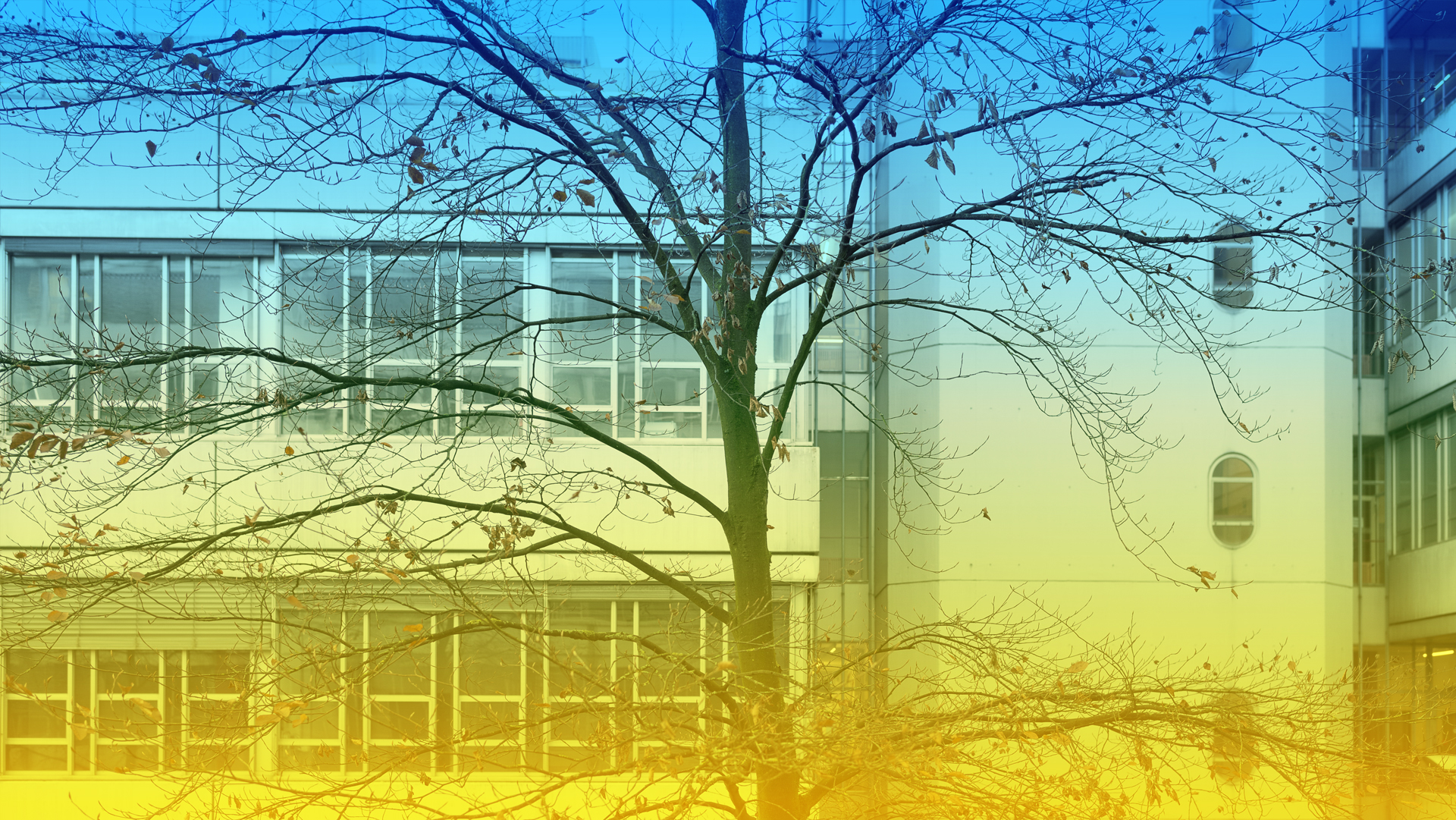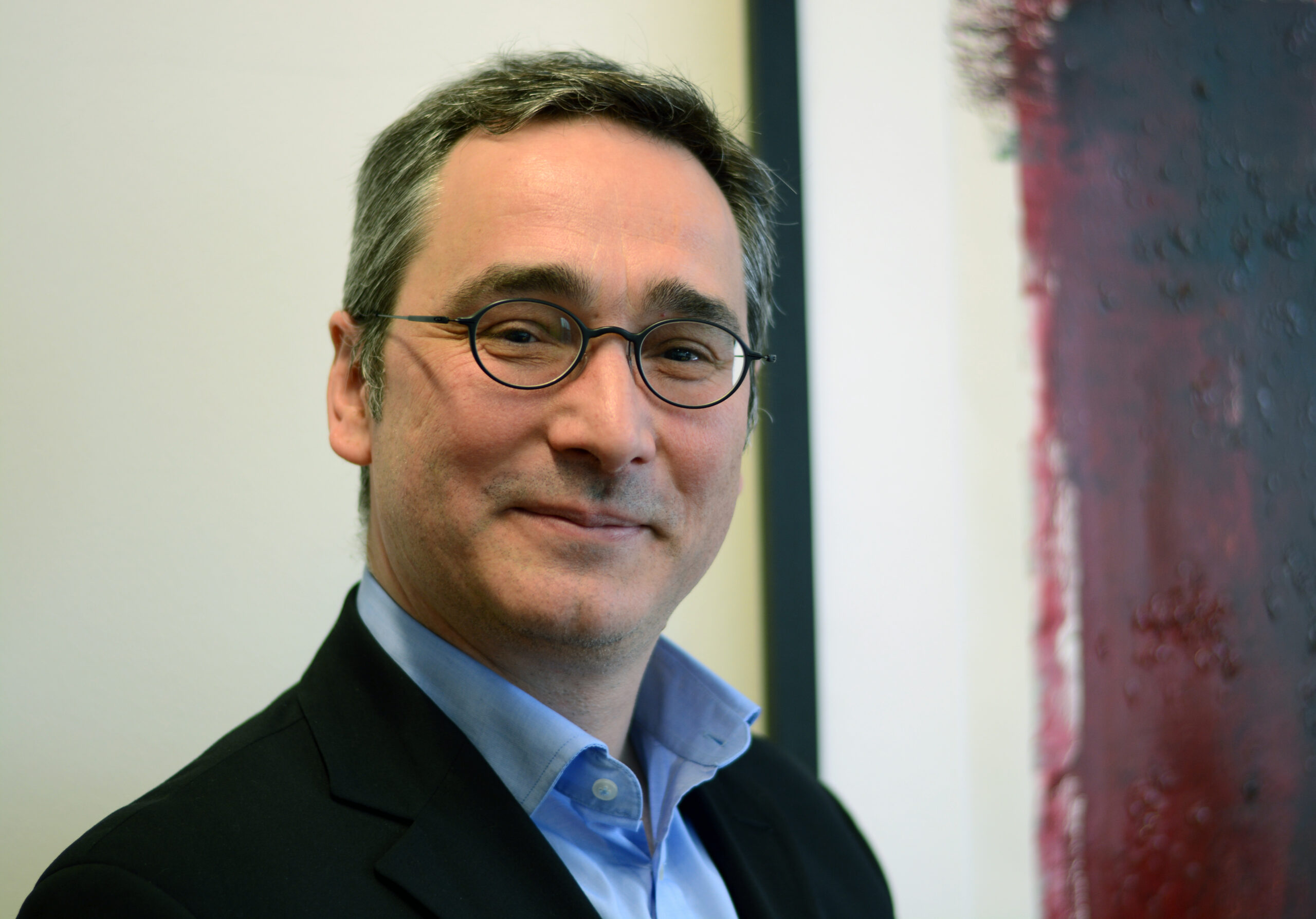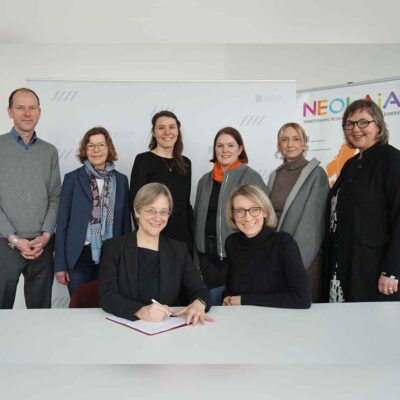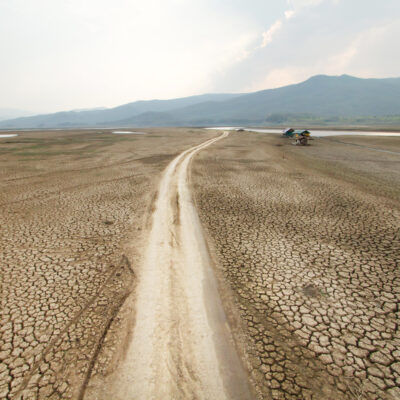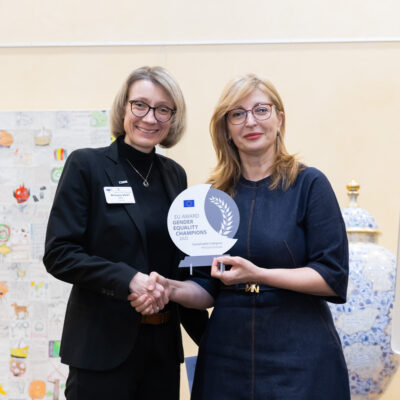Ukraine and Russia are historically closely intertwined. Historian Dr Frank Grüner is professor of Eastern European history in the Faculty of History, Philosophy and Theology. His research interests include the history of Russia from a global and entangled perspective. Frank Grüner in an interview about the historical dimension of the Ukraine war and how historical analysis can debunk fake news.
The Ukraine war is being referred to as Putin’s war against a ‘brother people’, stemming from the history of the two countries. Can you briefly outline the historical dimension of this war?
In short, Russians, Ukrainians, and Belarusians share common historical roots. They all descend from the East Slavic tribes that settled on the territory of present-day Ukraine in the 6th to 8th centuries. Their close linguistic, cultural, religious, political, and administrative ties go back to the times of Kievan Rus in the 10th century, until the Kievan empire collapsed in the early 13th century. This period, which is disputed in the historiography of Russia and Ukraine, lies several centuries before the time when there was any such thing as nations at all. Ukraine was then referred to as a ‘borderland’ from the perspective of the Moscow Grand Duchy and later the Russian Empire starting in the 14th and 15th centuries without any clear definition of its territory. This snapshot of history shows that it is extremely questionable for Putin to speak of Russia’s ‘historical’ claims or exclusively of ‘Russian heritage’ when it comes to Ukraine.
Putin also denies Ukraine’s legitimacy as a sovereign state…
… and in doing so reduces it in a completely distorted manner to two perspectives: firstly, to an exclusively Russian-Ukrainian entity as a territory with a shared cultural heritage, a “cultural-spiritual space” in Putin’s words. And secondly, to Ukraine as a borderland that had existed for centuries in cultural affinity and under the protection of Russia until it was ‘arbitrarily’ made a republic by Lenin and the Bolsheviks in the Soviet era and given Russian territory ‘without any historical justification’. According to Putin, Ukraine’s fall from grace lies in the severance of this sacred alliance with Russia. Putin deliberately blots out historical developments such as the Ukrainian national movement in the 19th and early 20th centuries or facts such as the mass terror of the Stalinist regime against the Ukrainian population—the latter was a major cause for the collaboration of larger parts of the Ukrainian population with Hitler’s Germany.
To what extent does Putin distort the facts and instrumentalise history when he justifies his military intervention with a denazification of Ukraine?
Essentially, he is alluding to the phenomenon of Ukrainian Soviet citizens collaborating with the German occupation regime during the Second World War. And yes, indeed there was collaboration, not only on the Ukrainian side, but also by other Soviet citizens. But we also have to look at this in the correct historical context. The Ukrainian population suffered under Stalinist terror more than almost any other group; in the 1930s alone, there were an estimated 3.5 to 4 million victims in Ukraine. It is not difficult to understand then why Hitler’s Germany was seen by some sections of the population as a kind of ‘liberator’ from the Soviet reign of terror. But that, too, is only part of the story. Millions of Ukrainians lost their lives in the fight against National Socialist Germany—in the Soviet Army, as partisans or civilians—and thus contributed significantly to the victory of the Soviet Army over National Socialist Germany.
As a researcher, you are engaged with ‘entangled history’. How are you able to relate your field of research to the current Ukraine war?
To understand today’s Ukraine, I need to analyse the country’s historical relations and the various interests and players, as well as cultural and transnational entanglements. Like all of Eastern Europe, Ukraine constitutes a culturally and politically very heterogeneous region—especially in the period before the Second World War. Ukrainians, Russians, Jews, Germans, Greeks and representatives of numerous other cultures, religions and nations have lived side by side or together in cities like Odessa or Lviv for centuries. Sometimes in peace, sometimes in conflict. Their coexistence was and is strongly influenced by politics at state and international level. However, these social, cultural or national ties often play a particularly important role in a conflict or war. They have an impact or are instrumentalised politically, just as Putin exploits the role of Russian populations in Ukraine for his imperial policy. Entangled history explores these complex exchange processes and interactions.
How do you foresee the war progressing and its consequences at global level?
I am not a military expert, but for me there is no doubt that Russia’s military is still fundamentally superior, despite the apparent shortcomings of the Russian armed forces. Putin’s aggressive rhetoric and the brutality of his actions, including against the Ukrainian civilian population, make a diplomatic solution, whatever that might look like, increasingly unlikely, especially since there is no sign of what a peaceful post-war order might look like. Putin will continue to fight one way or another until Ukraine surrenders, and the Ukrainians, for their part, will defend their independence to the very end.
Yet politically, Putin has already lost this war. The Ukrainians will not accept a puppet government installed by Moscow. The Putin regime will suppress the resistance of the Ukrainian population with all the means at its disposal, but in the medium to long term it will not succeed. Whether China, Turkey or any other player in world politics will be able to successfully mediate between Russia and Ukraine depends on the Putin regime’s willingness to negotiate. There is no sign of that. Even after the recent talks in Istanbul, I do not believe that Putin will accept a sovereign Ukraine.
© Universität Bielefeld
This gives the civilian population in Russia a key role. Only when they refuse to follow Putin and send the despot packing can there be a new beginning in Russian-Ukrainian relations. This is not likely to happen any time soon, especially since many Russians who are critical of the regime are leaving the country. Putin is still firmly in the saddle and it will be a painful process until larger parts of Russian society realise the true extent of the Putin regime’s crimes. Until then, Putin’s Russia will isolate itself more and more internationally and bombard the world with propaganda and hatred. Putin is unlikely to wage war against NATO countries, at least at present, because Russia does not stand a chance of winning. Putin knows this. Not a particularly encouraging outlook overall, though, I know!
From the historian’s perspective: what can you do now with regard to the Ukraine war?
Analyse and inform. As academics, we must use all the means at our disposal to analyse the situation clearly and denounce crimes against international law. This has not always been done sufficiently clearly and consistently in the past. In the case of the war against Ukraine, the history and politics of history by the Putin regime play a significant role. For the Russian government points to history to justify its war of aggression, which it does not refer to as such. Putin is obsessively convinced that he is fulfilling Russia’s historic mission. As historians, we must correct misrepresentations and fake news in light of Ukraine’s history and expose the rhetoric and actions of the Putin regime for what they are: aggressive war propaganda and serious crimes against international law and humanity.
About this series
In these interviews, academics at the university explain their assessment of the war in Ukraine from the perspective of their own disciplines. Previously published interviews:
- Professor Dr Andreas Zick (23.3.2022): ‘We need to know where more violence is brewing’
